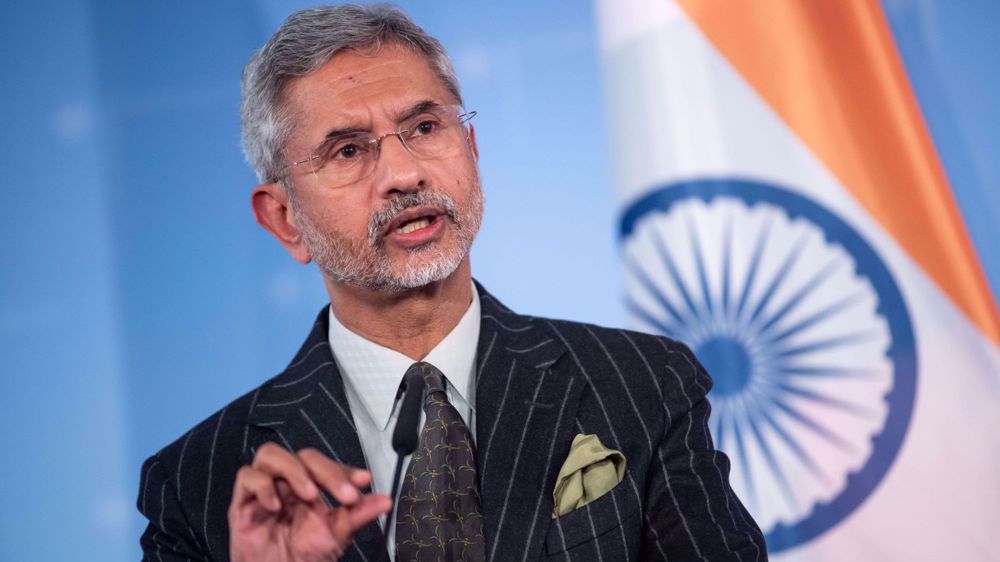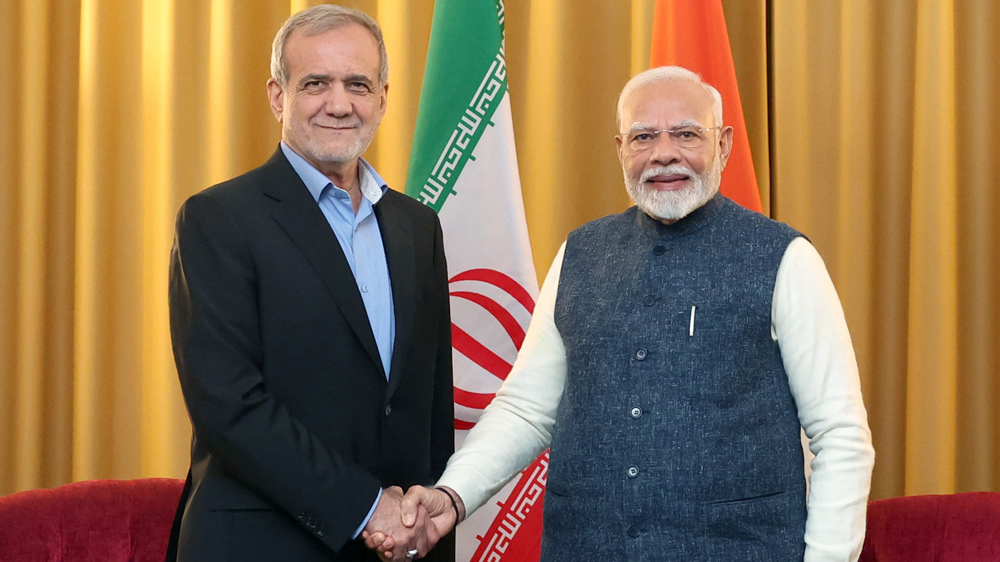Indians to stage citizenship law protest on New Year’s Eve
Thousands of Indians are set to ring in the New Year by staging protests against a citizenship law that critics say discriminates against the minority Muslim community and undermines the country’s secular constitution.
Organizers were expected to hold at least three demonstrations in the capital, New Delhi, on Tuesday night, including the area of Shaheen Bagh, where hundreds of residents have been blocking a major highway for more than two weeks.
A protest gathering has also been planned outside of New Delhi’s Jamia Millia Islamia University, which was stormed by Indian security forces earlier this month.
Student and civil society groups, opposition parties, and others also plan events on New Year’s Day to express their opposition to the law.
The protesters plan to hold readings from the constitution and candle-light marches at these gatherings, which are expected to end shortly after midnight.
Social media was buzzing with invitations to join the protests.
“Bring your art materials, solidarity candles, placards, snacks and blankets,” said a post announcing “New Year’s Eve at India Gate” in New Delhi.
“New Year’s resolution to defend the constitution,” read the schedule for a protest planned in New Delhi.
Similar “protest parties” were being organized at designated sites in other major Indian cities.
In the southern city of Hyderabad, at least two small groups of demonstrators have been organizing flash protests.
Street-side poetry recitals and stand-up comedy are also planned in the financial capital of Mumbai and the eastern city of Kolkata.
This comes despite Prime Minister Narendra Modi’s attempts to calm the demonstrations, which have run for nearly three weeks.
Police official Chinmoy Biswal, who oversees the southeastern part of the capital city that includes Shaheen Bagh and Jamia Millia University, said additional forces had been deployed in New Delhi to tackle any unwanted incident on New Year’s Eve.
“All precautionary measures are in place,” Biswal said, adding, "Recently, there have been no incidents. So we hope things will remain fine.”
India has been rocked by the protests since December 11, when Premier Modi’s ruling Hindu nationalist Bharatiya Janata Party (BJP) passed the Citizenship Amendment Act (CAA), easing the way for non-Muslim migrants from the neighboring Muslim-majority nations of Afghanistan, Bangladesh, and Pakistan to gain Indian citizenship.

Combined with opposition to a proposed National Register of Citizens (NRC), the citizenship is feared by many Indians to discriminate against the minority Muslim community and chip away at the South Asian country’s secular tradition.
Major Indian cities have seen large peaceful protests over the past few weeks.
But some demonstrations have turned violent, particularly in the populous northern state of Uttar Pradesh, and at least 26 people have been killed in clashes with police since early December.
Heavy-handed police tactics have fueled anger, with many accusing authorities of arbitrary force against the protesters.
Iraq exhuming remains of 100 Kurdish women, children killed by Saddam
Panama rejects talks with US over canal control
HTS rulers name al-Qaeda operative as Syria's new spy chief
Iran voices concern about rising insecurity, violence in Syria
VIDEO | Karachi sit-in amplifies nationwide call for justice for Parachinar victims
Iran strongly condemns Israeli bombing of Yemen's civilian infrastructure
VIDEO | Press TV's news headlines
VIDEO | Israel and Iran’s Nuclear Facilities?










 This makes it easy to access the Press TV website
This makes it easy to access the Press TV website